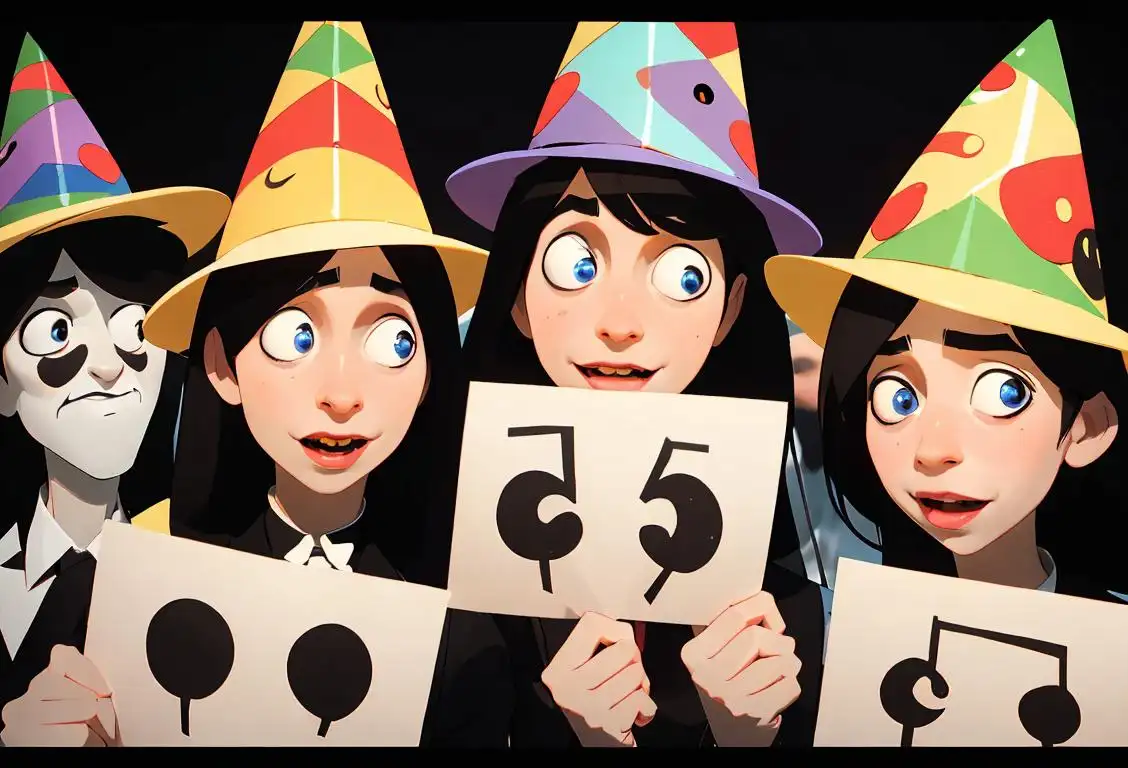National Grammar Day

Hello word enthusiasts and punctuation pals! Did you know there's a day set aside to celebrate the art of 'dotting our i’s and crossing our t’s'? Well, pop the kettle on, grab your grammar textbooks and sit down with us as we take a delightful journey through the internet history of National Grammar Day.
When is Grammar Day?
It's national grammar day on the 4th March.
A Short History
National Grammar Day was officially recognized in 2008 by Martha Brockenbrough, the author of 'Things That Make Us[Sic]' and founder of the Society for the Promotion of Good Grammar. The day swiftly soared in popularity with linguistic learners and word wizards across the globe, resulting in a whopping 9864 mentions online in a single day on March 4th, 2016.
Why March 4th?
So, why March the 4th, you may ask? Well, in a whimsical twist, the date was chosen for its imperative meaning - for us to 'march forth' confidently in our use of language, shedding any lingering doubts about split infinitives and Oxford commas. Quite clever, don’t you think?
The Power of Punctuation
Over the years, National Grammar Day has served as a beacon for language lovers, emphasizing the power of punctuation, the significance of sentence structure, and the revolutionary role of the semicolon. From schools to offices, it has encouraged an environment that appreciates proper use of grammar, and it continues to remind us of the fun to be found in our language’s rules.
Celebrating National Grammar Day
Whether you’re a literature lover or just want to make your emails stand out at work, National Grammar Day is a wonderful time to up your grammar game. So, next time it swings around, why not try hosting a punctuation-themed party, join a grammar workshop, or if you're really brave, participate in the annual grammar-themed haiku contest!
History behind the term 'Grammar'
14th Century
The Birth of Grammar
During the 14th century, the term 'grammar' emerged from the Latin word 'grammatica,' which was derived from the Greek word 'grammatikē technē,' meaning 'art of letters.' In its early usage, grammar encompassed the study of language, including its structure, rules, and usage.
16th Century
The Rise of English Grammar
In the 16th century, grammar began to be associated with the study of a particular language, especially English. Grammar books and manuals were written to guide speakers of English in understanding the correct usage, syntax, and morphology of the language. This period also marked the standardization of English grammar.
18th Century
Prescriptive Grammar in the Enlightenment Era
During the Enlightenment era in the 18th century, the focus shifted to prescriptive grammar. Scholars aimed to establish a set of rules to regulate language and enforce linguistic correctness. This period saw the rise of influential grammarian figures, such as Robert Lowth and Lindley Murray, who wrote extensively on English grammar.
19th Century
Linguistic Science and Descriptive Grammar
In the 19th century, the field of grammar began to evolve with the emergence of linguistic science. Scholars like Wilhelm von Humboldt and Ferdinand de Saussure introduced the concept of descriptive grammar, which focused on describing and analyzing languages as they are naturally spoken. This approach sought to understand language as a part of human culture and society.
20th Century
Transformation in Modern Linguistics
The 20th century witnessed significant developments in the study of grammar. Linguists like Noam Chomsky revolutionized the field with the introduction of generative grammar, which explored the innate structures and rules that underlie language production. As technology advanced, computational linguistics gained prominence, applying computer algorithms to analyze and understand grammar patterns.
21st Century
Grammar in the Digital Age
In the 21st century, the advent of the internet and social media brought about new challenges and opportunities for grammar. Online platforms facilitated the dissemination of grammar-related content, while the informal nature of digital communication led to the evolution of grammar norms. Grammar has become a topic of interest and debate among internet users, and online grammar resources have become readily available.
Did you know?
Did you know that National Grammar Day's official theme song is 'March Forth' by The Electric Company? That's right – not only does this day have its own date, but it also has its own groove!Tagged
awareness fun educationFirst identified
8th March 2015Most mentioned on
4th March 2016Total mentions
9864Other days
School Nurse Day
Mathematics Day
Punctuation Day
Grammar Day
History Day
Student Athlete Day
Bird Day
Education Day
Teacher Appreciation Day
Puzzle Day








